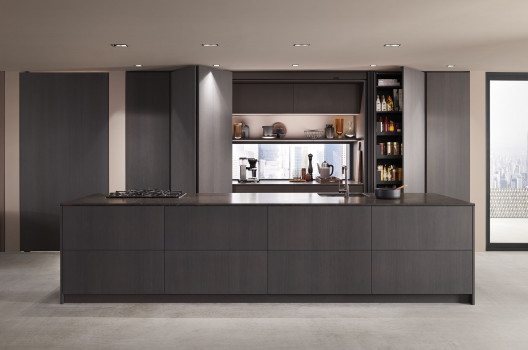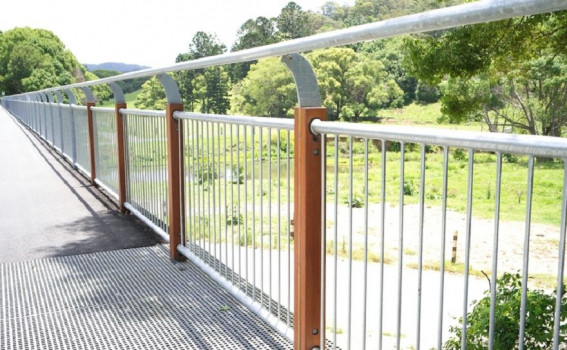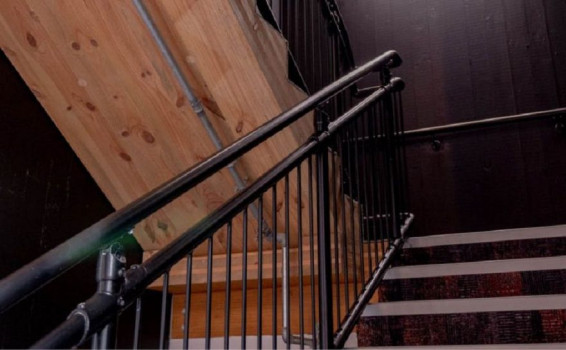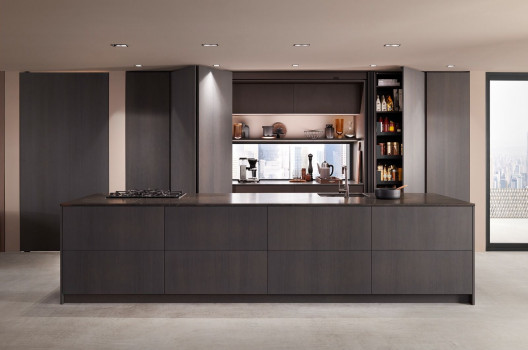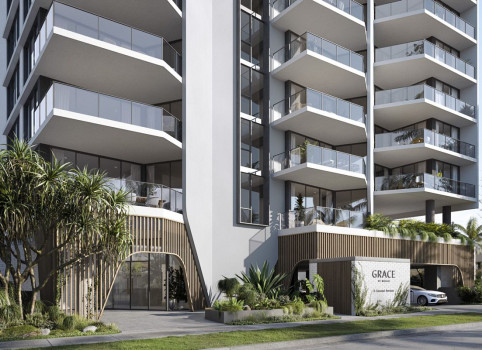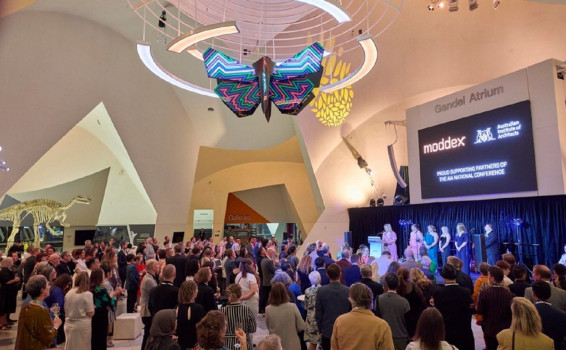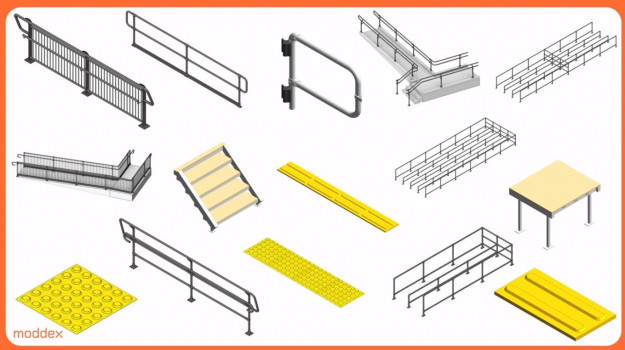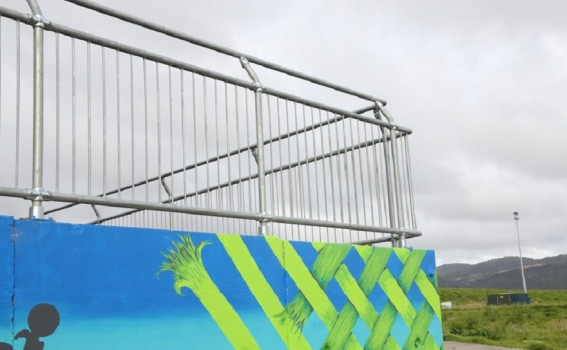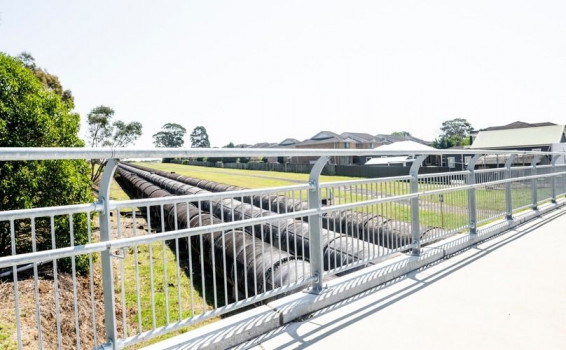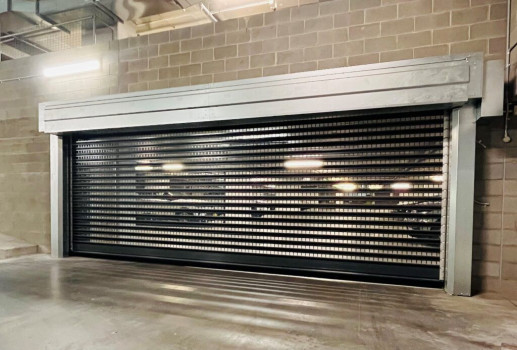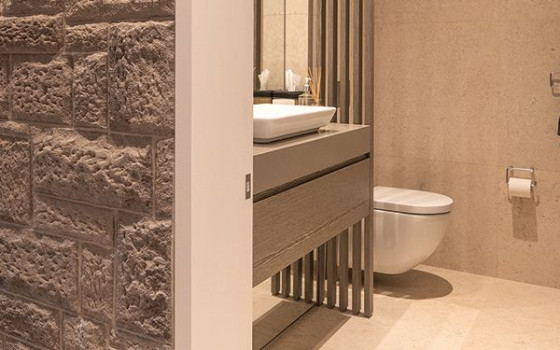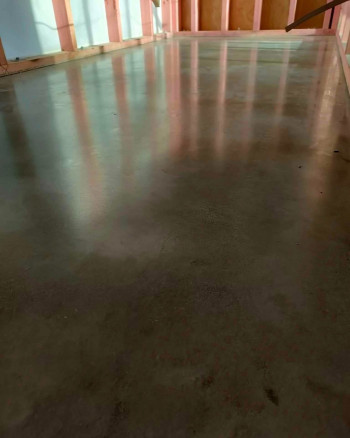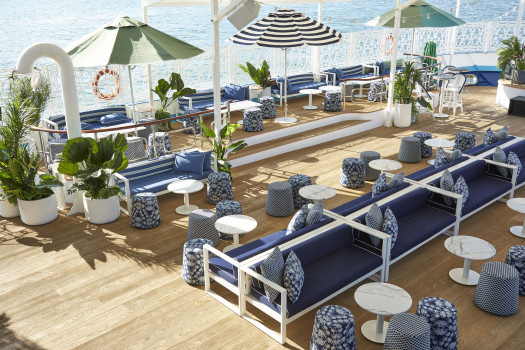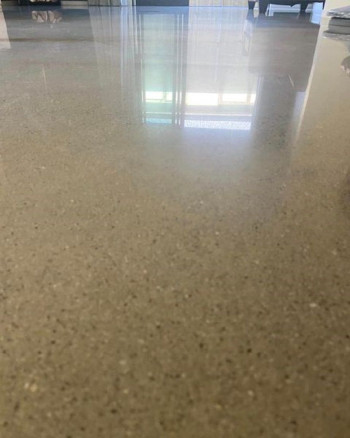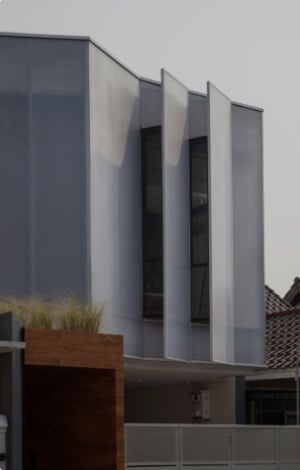736 results for "D" in Articles
PROJECT
9 MONTHS AGO
The perfect wall is one you can move whenever you feel like it, so your living, working, cooking, public and private spaces can scale up or down to suit your needs.
PROJECT CASE STUDIES
9 MONTHS AGO
Stage 1 of 4 of the Northern Rivers Rail Trail is officially open as of 1 March 2023, repurposing the old unused railway corridor and transforming it into the region’s newest must-do experience – a safe and enchanting shared recreational and nature trail catering to walkers, cyclists, and individuals of all abilities.
EDUCATION
9 MONTHS AGO
Our public ramps, stairways, and walkways all have handrails and balustrades as necessary design features. Handrails are there to help users and give them stability. With the aid of these handrails, everyone can safely navigate the ascent and descent of a ramp or set of stairs, especially those who struggle with balance or vision impairment.
NEWS
9 MONTHS AGO
Is it a wall, or a door? REVEGO opens up new possibilities for open-plan design.
PROJECT CASE STUDIES
10 MONTHS AGO
Gracemere, just outside of Rockhampton, has become one of the fastest developing precincts in the area. With population and industry expected to rise over the coming years, a number of civil infrastructure projects have been undertaken to prepare for the influx of people and vehicles in the future.
NEWS
10 MONTHS AGO
AS1428 has played a crucial role in shaping balustrade and handrail designs to provide accessibility and mobility for people with disabilities in Australia.
PROJECT
10 MONTHS AGO
As its striking front facade angles towards the expanse of the stunning Burleigh Heads coastline, Grace by Mosaic– a boutique luxury multi-residential development by Mosaic Property Group – presents itself as a relaxed yet sophisticated beachside oasis.
NEWS
10 MONTHS AGO
In the realm of architecture, where form meets function under the critical eye of safety and regulations, the creation of accessible spaces is a mandate as society becomes more inclusive. The launch of the Ezibilt ramp, stair and walkway system serves as a testament to our commitment to inclusivity, offering a reliable tool to weave accessibility seamlessly into building and space designs. The Australian Standards of AS1428.1-2021 set forth a blueprint for mobility, specifically delineating the spatial needs for wheelchair circulation—a criterion paramount to the fabric of inclusive design. As we delve into these standards, let’s demystify the technicalities and translate them into practical knowledge that can elevate architectural practices. Design Considerations for Ramps and Stairs Creating accessible ramps and stairs is not just about meeting regulatory requirements; it’s about ensuring that individuals of all abilities can navigate a space with dignity and ease. Here, we’ll explore some critical design considerations to keep in mind when incorporating ramps and stairs into your architectural projects. Landings and Their Importance in Accessibility Landings serve as critical elements in both ramp and stair design. These flat, level platforms allow users to rest, change direction, or transition between different paths. When designing landings, consider the following: Size Matters: Ensure that landings are of sufficient size to accommodate wheelchair users comfortably. As per AS1428.1-2021, landings at the top and bottom of ramps should be at least 1500mm long. For stairs, landings should be as wide as the stairs themselves. Clear Pathways: Keep landings free of obstructions. Wheelchair users, in particular, need a clear, unobstructed path to navigate safely. Turning Space: Allow adequate space for wheelchair users to make turns. Visual Contrast: Consider using visual contrast on landings to aid individuals with visual impairments. This can be achieved through variations in flooring materials or color. Inclusivity in Design: Guide to Accessible Ramps and Stairs Optimal Sizes for Landings and Circulation Paths In addition to the specific dimensions outlined in AS1428.1-2021, architects should strive for optimal sizes in ramp and stair design to ensure a user-friendly experience: Gradient Considerations: When designing ramps, aim for gradients that are at the shallower end of the allowable range. A less steep incline is easier for users to traverse, especially for those with mobility devices. A gradient of 1:14 is standard. Visibility: Ensure that ramps and stairs are well-lit and visually distinct. Adequate lighting and visual cues aid users with different abilities in navigating the space confidently. Universal Design: Strive for universal design principles that cater to a broad spectrum of users. Consider features like tactile indicators for those with visual impairments and slip-resistant surfaces for everyone’s safety. Practical Application of Standards in Design Now that we’ve explored the essential design considerations, let’s delve into the practical application of AS1428.1-2021 in your architectural projects. AS1428.1-2021 provides specific guidelines for the design of turns along accessible pathways. These guidelines ensure that wheelchair users can navigate turns smoothly without encountering obstacles or excessive effort. Here’s how to apply the 60° to 90° turn requirements effectively: Understanding Turn Angles: The standard specifies that turns should have an angle between 60° and 90°. This range allows for easy maneuverability while preventing overly tight turns that may be challenging for wheelchair users. Inclusivity in Design: Guide to Accessible Ramps and Stairs 60 degree turn Inclusivity in Design: Guide to Accessible Ramps and Stairs 75 degree burn Inclusivity in Design: Guide to Accessible Ramps and Stairs 90 degree turn Design with Space: To accommodate these turn angles, plan your pathways with ample space. Ensure that corners and intersections are designed with curves or gradual angles to meet the requirements. Additionally, consider adequate space that is clear of any door swing with ramps leading to an entry/exit. Clear Obstructions: Keep pathways free from obstructions such as furniture or decorative elements that could hinder turning. Users should have a clear, unobstructed path at all times. Ensure the ramp landing area at the top is not too close to stairs as this may be used as a turning point for wheelchair users. Consider Transitions: When designing transitions between different floor surfaces, such as from a corridor to a room, ensure that the change in level is gradual and compliant with the standard’s requirements. Considering the Protrusions of Handrails and Balustrades Handrails and balustrades are essential safety features, but their design should not impede accessibility. AS1428.1-2021 includes provisions to minimize protrusions that could create hazards for users: Protrusion Limits: The standard specifies limits on how much handrails and balustrades can protrude into circulation spaces. These limits are in place to prevent accidents, especially for those with visual impairments. Selecting Appropriate Components: Choose handrail and balustrade components that meet the standards and have minimal protrusions. Rounded or streamlined designs are often more user-friendly in this regard. Inclusivity in Design: Guide to Accessible Ramps and Stairs Clear Visual Indicators: Use visual indicators to highlight the presence of handrails and balustrades. Contrasting colours or materials can make these safety features more noticeable to users. By considering these guidelines and implementing them in your architectural designs, you can ensure that handrails and balustrades enhance safety without compromising accessibility. Final Thoughts The quest for accessibility in architecture is not merely a legal requirement but a commitment to creating spaces that embrace the diversity of human abilities. When it comes to accessibility solutions, ramp and stair design is a critical design component. Not only must these structures meet safety requirements, but they must also be durable and compliant with building codes and regulations to ensure a safe and secure space for all users. If poorly thought out, there could be serious emotional and financial cost associated with injury, permanent disability, or death should this design element be overlooked. Products like the Ezibilt ramp, stair and walkway system serve as invaluable allies, simplifying the process of compliance and enhancing safety. By embracing these tools and the principles of inclusive design, we can build a more inclusive and accessible world. Learn more about Ezibilt™ Pre-Engineered Ramp and Deck Solution
NEWS
10 MONTHS AGO
In a significant move to enhance the safety and durability of buildings, New Zealand’s construction industry braces for the implementation of the Building Product Information Requirements (BPIR) outlined in the Building Amendment Act 2021.
NEWS
11 MONTHS AGO
According to the AIHW, “around 1 in 6 (18%) people in Australia – or about 4.4 million – have a disability.”
EVENTS
11 MONTHS AGO
Moddex announced their new national partnership with the esteemed Australian Institute of Architects
NEWS
11 MONTHS AGO
As the world of Building Information Modeling (BIM) continually evolves, staying current with the latest tools is crucial for efficient and effective design.
PROJECT CASE STUDIES
1 YEAR AGO
Bike enthusiasts of every level in the Northland of North Island, New Zealand, have a new outdoor venue to explore on two wheels.
PROJECT CASE STUDIES
1 YEAR AGO
The project comprised the demolition and the construction of two new bridges at Hector and Wolumba Streets, Chester Hill. One of the most critical aspects of this project was that the two bridges run over Sydney Water mains, so compliance was a high
PROJECT
1 YEAR AGO
Premier Door Systems, a frontrunner in delivering top-notch commercial doors, showcased its dedication to innovation and excellence through a recent collaboration with Multiplex Construction.
NEWS
1 YEAR AGO
Waterproofing is a critical aspect of safeguarding infrastructure like carpark decks, bridges, and various civil engineering structures. These constructions, often paved with asphalt, require a waterproofing solution that can withstand the demands of both the environment and heavy traffic.
PROJECT CASE STUDIES
1 YEAR AGO
A very old cracking and uneven slab. A tough job.
PROJECT CASE STUDIES
1 YEAR AGO
Polished concrete floors are low maintenance, durable and stunning.
PROJECT
1 YEAR AGO
When a last-minute design change moved plumbing amenities, a pumping solution was needed.
PROJECT CASE STUDIES
1 YEAR AGO
With the right flooring systems, we can make your old tired floors look fresh and new.
PROJECT
1 YEAR AGO
As every designer knows, the kitchen design process is a trade-off between collaboration and inspiration.
PROJECT
1 YEAR AGO
Introducing the new and improved SeaDeck Sydney.
SeaDeck is the place to be if you’re looking to set sail on the beautiful waters of Sydney Harbour.
PROJECT CASE STUDIES
1 YEAR AGO
A lot of repair work on this floor but with the right flooring systems, we can make your old tired floors look fresh and new. Get in touch to discuss your projects.
OTHER
1 YEAR AGO
The right flooring systems will make or break your results.

 Indonesia
Indonesia
 Australia
Australia
 Philippines
Philippines
 Hongkong
Hongkong
 Singapore
Singapore
 Malaysia
Malaysia


